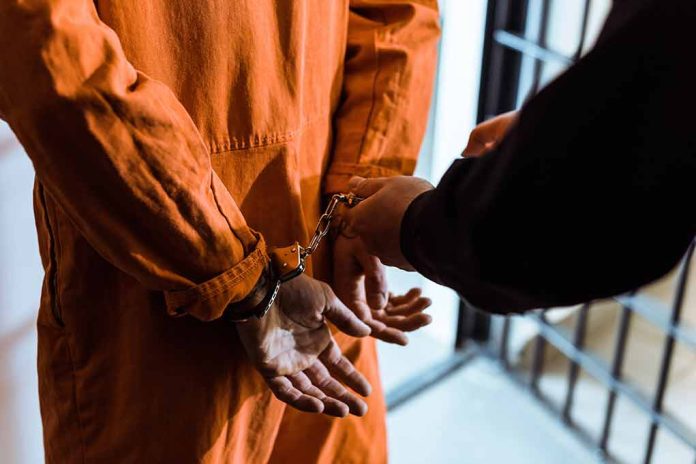
The ongoing debate over urban bandit executions in Kinshasa highlights a deep divide between human rights principles and crime control efforts.
At a Glance
- 102 alleged “Kulunas” executed, with 70 more at risk in Congo.
- Debate centers on human rights versus crime deterrence.
- Executions occur at Angenga prison, overseen by Congo’s justice minister.
- Critics warn of potential extrajudicial measures and human rights violations.
Executions Spark Controversy
In the past week, the Congolese government executed 102 men, with 70 more awaiting a similar fate. These individuals, aged between 18 to 35, were labeled as “Kulunas” or urban bandits known for armed robberies in Kinshasa. The executions occurred at Angenga prison in northwest Congo, with 45 individuals executed in late December and an additional 57 in the last 48 hours. Minister of Justice Mutamba oversees these measures, confirming the continuation of the death penalty amidst controversy.
A third batch of 70 prisoners has arrived at Angenga, though their status remains uncertain. The death penalty’s reimplementation raises global concerns, as it challenges previously abolished practices within the Democratic Republic of the Congo. Critics view these executions as possible extrajudicial measures that defy human rights principles, provoking a significant public debate.
Debate on the Death Penalty
Supporters argue that these executions are necessary for restoring order in crime-riddled urban areas. Fiston Kakule, a Goma resident, expressed approval, stating, “We welcome this decision by the minister because it will help put an end to urban crime. From 8 p.m. onwards, you can’t move around freely because you’re afraid of running into a Kuluna.” Conversely, human rights activists like Espoir Muhinuka warn against possible extrajudicial executions and stress the importance of judicial fairness.
Furthermore, Muhinuka underscores the need to address root causes like poverty, unemployment, and social exclusion, which fuel urban crime. This perspective highlights a call for holistic reformations that balance security demands with human rights considerations and essential socio-economic improvements.
Complex Historical Context
The death penalty in Congo was abolished in 1981, reinstated in 2006, and resumed in March 2024 for military personnel accused of treason. Although soldiers have recently been sentenced to death, no executions have been reported. The current execution of alleged urban bandits reflects a significant shift in policy, timing with renewed discussions on human rights and justice systems over the death penalty’s application.
The recent execution of 102 men reflects a profound struggle between addressing rampant criminality and protecting human rights within a complex societal framework. As the global community watches, Congo’s government and citizens navigate a challenging pathway with significant sociopolitical implications.
Sources
1. ‘Urban bandits’: 102 men executed by Congolese government
2. Congo executes 102 ‘urban bandits’ with 70 more set to be killed, officials say




